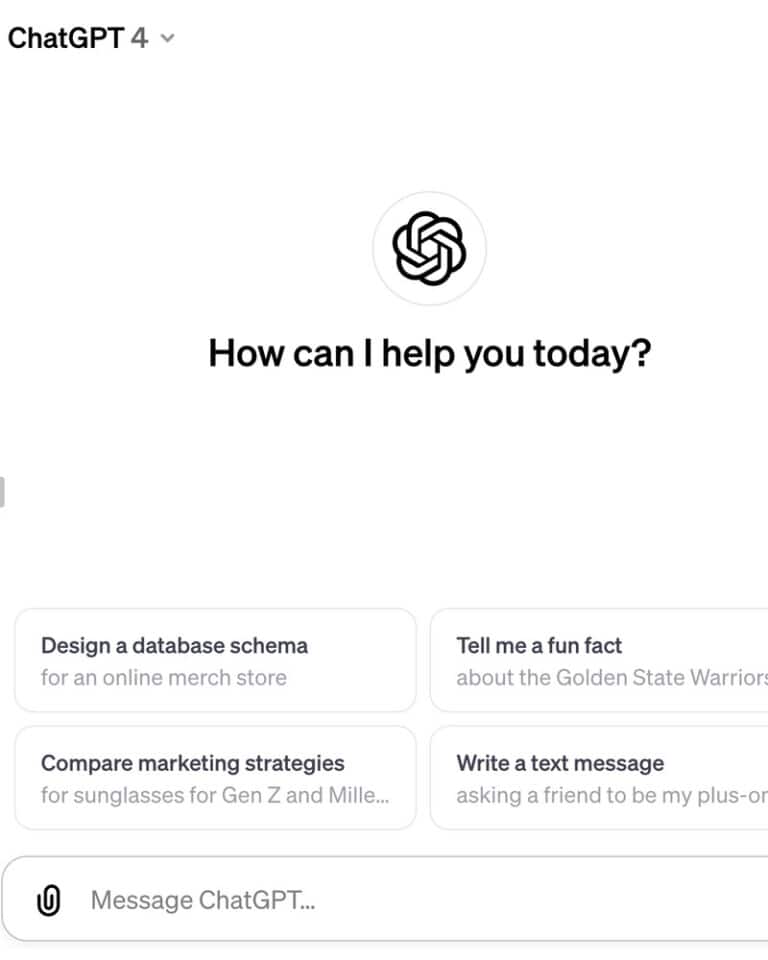Artificial intelligence has been the focus of the horror genre for decades.
Classics like “Chucky” help us imagine what life would be like if our toys suddenly gained artificial sentience.

Similarly, sci-fi thrillers like “Ex Machina” force us to contend with the ethics of AI and imagine a world where the programs may harbor ill intent for humankind.
In reality, AI is far less nefarious than horror movies make out.
They’re given strict boundaries to work within and are usually trained to mimic the more admirable elements of human nature.
This is good news if you’re a budding writer working on a budget, as programs like ChatGPT may help you pen the next great work of horror fiction.
ChatGPT can be particularly helpful if you’re yet to secure the services of an editor.
The large language model-based programs are capable of reviewing your work and offering suggestions in real-time. Even free versions of the program can be a powerful tool to help you along the way.
The Writing Process

Editors play a crucial role in the writing process.
While some writers prefer their editors to be hands-off, many bring their developmental editors in during the process to help with pacing, plot analysis, and character development.
ChatGPT can help you develop your work in real-time by acting as a reader for every chapter you produce.
Copy-paste your recent work into the message and ask the program to make suggestions related to character development, sentence structure, style, or tone.
Using OpenAI to proofread your work isn’t a perfect replacement for a real-life editor, but it can save you time and money.
This is underscored by recent research published by Brown University which suggests that users will soon be able to turn their thoughts into handwriting.
These types of brain-machine interfaces (BMIs) are just one example of futuristic technology that could reshape mankind and change our relationship with AI altogether.
It’s all speculation for now, but we could see brain-machine interfaces capable of decoding our thoughts and leading us into a new era of transhumanism soon.
Some of the BMI innovations that Elon Musk is developing include treatments for addiction, mental illness and the ability to connect the human brain with programs to create a “Fitbit for the skull.”
Today’s level of technological advances also means great opportunities for horror writers.
Idea Generation
If you want to make it as a full-time horror writer, you’re going to need plenty of pulse-raising ideas.
However, anyone who has spent time behind the keyboard knows that there’s an existential terror lurking at the top of every blank page: writer’s block.
Writer’s block is a serious issue for professional writers, as you need to produce content every time you sit down to type.
Usually, fiction writers can speak to developmental editors when they’re short on ideas to generate some fresh prompts.
Fortunately, you can make use of the latest trends in generative AI to help with creative writing and idea generation.
Generative AI programs can track trends online and help you figure out which ideas will resonate most with readers, too.
It’s important to note that you shouldn’t always turn to ChatGPT.
Instead, use the program to help get the creative juices flowing by suggesting ideas.
Simple queries, like “Give me a simple prompt for a short horror story” give you something to work on without taking over the writing process altogether.
Line Editing

Line editing is the bane of any fiction writer.
You don’t want to spend your days adjusting syntax and will lose hours every week fixing comma splices and punctuating dialogue properly.
ChatGPT can help you make the editing process more efficient by reading your work and making fixes in bulk.
This can help you dodge editorial pet peeves when you send your work to your human editor, too.
You will still need to proofread your work after sending it to ChatGPT.
While the program is powerful enough to spot most grammatical slip-ups, it can inexplicably miss certain mistakes.
The program sometimes struggles to identify contextual mistakes, too, and has a hard time making line edits related to tone.
Don’t let ChatGPT fool you into thinking that your work doesn’t need editorial attention, either.
You should use the hours you save on making line edits to address “big picture” problems related to plot and pacing with a real-life developmental editor.
This will clean up your final product and help you produce more compelling horror stories.
Alternatively, you can spend the time you would’ve spent fixing apostrophes and spelling errors to find book covers that are ethically produced, cost-effective, and send a shiver down the spine.
Fact-Checking
Technological innovations like AI are changing the way we write.
Today, you can use AI to check your work, suggest plot points, and spot dangling modifiers.
You can also use ChatGPT to answer questions and maintain your momentum when your story requires some research.
For example, if you’re writing a period thriller set in the 1700s, but are unsure of what a butler might wear, you could ask ChatGPT for a list of common clothes.
The program will describe the coats, hats, and accessories associated with the station so you can keep writing without having to dive down a Wikipedia rabbit hole.
However, ChatGPT is notorious for “hallucinations.”
The AI-generated hallucinations are hard to explain, but occur when the program doesn’t have a clear answer to your query.
Rather than drawing a blank, it will try to generate a guess based on the information available.
This can land you in hot water as an author and take readers out of the moment if you fail to follow up with some research of your own.
Conclusion
The doomsayers have already declared that ChatGPT will replace us all in the next decade. In reality, the program can be a powerful tool in your arsenal as a horror writer.
You can use ChatGPT as a developmental editor to make plot adjustments and identify character flaws.
Just be sure to double-check the suggestions, or you may find yourself producing plot twists that only an algorithm could love.



Leave a Reply